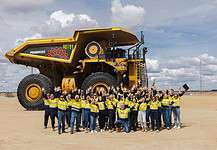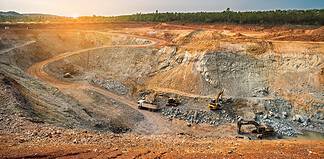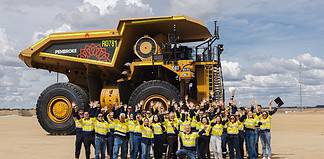 THE latest merger attempt between the world’s two largest gold producers has been terminated following ongoing asset disputes.
THE latest merger attempt between the world’s two largest gold producers has been terminated following ongoing asset disputes.
Canada’s Barrick Gold confirmed it had been in talks with US rival Newmont Mining to become one global mining force, stating the companies had negotiated a term sheet for a proposed merger, which was agreed upon and signed by both parties on 8 April.
However, talks were abandoned in late April following a deadlock on the companies’ Pacific-based assets. “Although Barrick believes the interests of shareholders are best served through the completion of this business combination, Newmont’s board has determined that the interests of Newmont’s shareholders are best served by remaining independent,” Barrick stated.
“Since then, Newmont has sought to renege on three foundational elements of the signed term sheet: the location of the head office of the merged company in Toronto; the identification of any specific assets that would be included in a spin-off company; and the carefully constructed governance arrangements, particularly with respect to the roles and authority of the chairman, the lead director and the CEO [chief executive],” the company said.
“Both companies were in full agreement that the merger would produce substantial added value for shareholders, through unique synergies that can only be achieved by combining Barrick and Newmont, and the spinoff and further rationalisation of certain of the companies’ combined assets.”
Newmont chairman Vincent Calarco denied instigating the negotiations halt, stating that Barrick had twice told Newmont the talks were “dead”.
Mr Calarco also criticised Barrick founder and chairman Peter Munk for publicly labelling Newmont, “extremely bureaucratic and not shareholder friendly”. Australian press reported the main focus of the companies was how jointly held assets in Australia and New Zealand would be spun-off – including negotiations on WA’s prosperous Kalgoorlie Super Pit.
Despite the feud, US media sources reported the merger could still be revived. Mr Munk told Wall Street Journal it was “difficult to find a reason” for his company not to merge with Newmont, as the deal would provide cost savings for each company’s respective Nevada-based mines.
“The economic gains of drilling the properties as one, of being able to disregard [company] borders, of establishing common infrastructure utilisation, contain great benefits,” he said.
“Why have two accountants or two geologists when one could do?” While many analysts estimated the companies’ potential savings from a merger at about US$500 million, the companies said savings could in fact exceed US$1 billion.











































